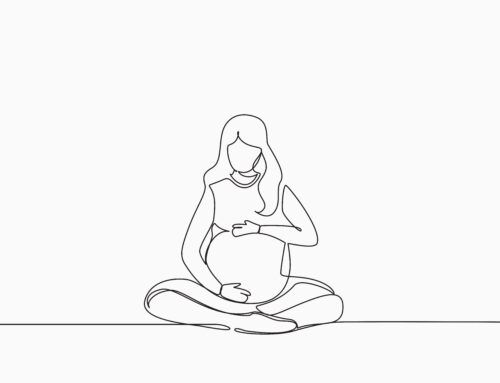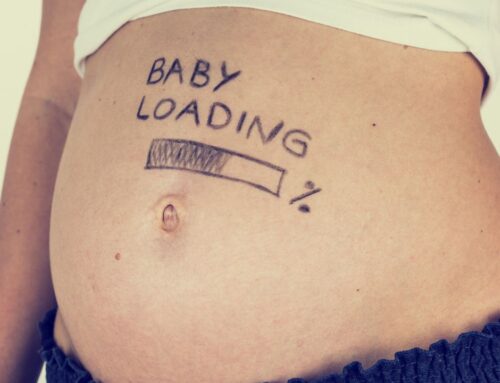Did you know that you can be put on bed rest as early as your first trimester? While there may be a dispute as to if or when bed rest should really be prescribed, there is no avoiding it and you will need to follow with the doctor’s orders to keep your baby safe. Even if hanging out in bed all day initially sounds good, the realities of bed rest will catch up to you faster than you think and there is no doubt that it will be challenging.
What Bed Rest Really Means
Bed rest” is a general term often used when your practitioner wants you to limit your activities during pregnancy. Lately, the term has become interchangeable and being replaced by some doctors with “activity restriction.” But whatever you want to call it, the idea is that you’re being ordered to take it easy and that is what you will need to do.
Why might your doctor prescribe activity restriction? Certain pregnancy and chronic conditions may prompt your doctor to reduce your activity.
- Preterm Labor- Moms-to-be who begin to contract regularly before week 37 of pregnancy or show other signs of early labor can expect to be placed on bed rest.
- Preeclampsia- Also known as pregnancy-induced hypertension (high blood pressure), preeclampsia occurs in up to 10 percent of pregnancies. Since the only sure cure is delivery, the goal of bed rest is simply to prolong the pregnancy until it is safe to deliver.
- Cervical changes-If your cervix shortens early, you may need a cervical cerclage, which essentially stitches your cervix closed, and activity restriction is typically prescribed.
- Multiple babies- If you are carrying multiple babies, you may be placed on activity restriction because the pregnancy is just more challenging then a normal pregnancy. The goal is not to deliver a premature baby which is very common when you are pregnant with more than one baby.
The reason that these care givers are putting so many pregnant women on bed rest is because research shows that activity restriction can reduce pressure on your cervix and strain on your heart. Just remember that even though bed rest could make you antsy, the benefits outweigh the risks not only for your baby but for you as well!
Bed Rest Side Effects
When you are put on bed rest not only will it affect you emotionally but it will affect you physically as well. You will experience joint pain and muscle aches from lack of movement and it will most likely also increase the risk of blog clots and decrease bone mass. Emotionally, you will probably feel completely confined and isolated. Anxiety, guilt and mood changes are extremely common. Your mood will in turn affect your partner and your other children as well.
If your health care provider recommends bed rest during pregnancy, ask plenty of questions to make sure you understand the rules. Some of the important questions to ask your doctor during the consultation are;
- Timing: Why do I need bed rest? Will restrictions be lifted if my symptoms improve? When will it begin? How long will I be on bed rest for?
- Position: Is it okay to sit up? For how long? Are stairs okay? What position is best to prevent blood clots?
- Personal Hygiene: Is it okay for me to get up to shower and use the toilet?
- Activity: Can I take part in light chores? Can I drive a car? Is it okay to have sex?
If the isolation or frustration of bed rest during pregnancy gets the best of you, consult with your provider for additional support. It is important to remember that this will not last forever. Enjoy the quiet and alone time when you can because once that baby arrives you will look back and appreciate the time on bed rest a lot more!
How to Survive Bed Rest: Making the Best of It
Since there are so many definitions of “bed rest’ and different circumstances, the first thing you will need to do is find out exactly which activities are allowed and which are not. You caregiver may advise you to spend 24 hours a day in bed, perhaps getting up only to use the bathroom, or she may recommend that you stay home and rest in bed, but give you the go-ahead to get up to make lunch or get a snack. On the other hand your caregiver may just want you to slow down by cutting your work hours and other activities.
Whatever the diagnosis is, you probably will have a lot less say than you usually do on your daily activities. Don’t worry, we are preparing a list for you that will keep you busy if you do need to stay in bed and how to prepare for the weeks to come.
- Put together a list of phone numbers of friends who can help out. Don’t worry your friends and family will be eager to help you through this!
- If you have children who need care, line up people to help watch them.
- Think about what you’ll need each day and who can help set you up in the morning or come by during the day.
- Ask friends to bring over easy meals to make so you don’t have to cook!
- Make sure you have a TV and DVD in your room! Take this time to catch up on all the shows you have wanted to watch over the past few years and haven’t had time!
- Keep a good supply of books and magazines around. Now may be your last chance in a long time to read for pleasure.
- Your lap top will be your best friend! With the baby coming soon, you will be searching the internet nonstop for baby items and reading up on pregnancy and parenthood.
- Get crafty! Teach yourself to knit, crochet, scrapbook or quilt, now is the time to learn.
- Remember that bed rest is SO common nowadays and there are many online support groups with that will allow you to share your experience with other soon to be mother’s who are going through the same thing! Some ones we recommend are
- A lot of employers will allow you to work remotely and others will suggest you take some of your maternity or sick time before the baby comes for the bed rest so do your research and speak with your present employer! Living with limitations can drive you a bit nuts, especially if you’re normally a very active person but keeping yourself busy can provide a welcome distraction!




